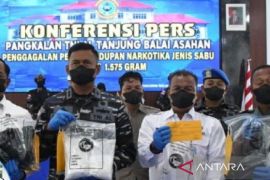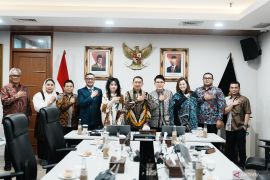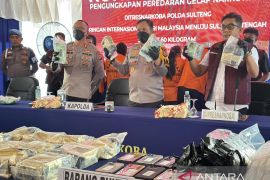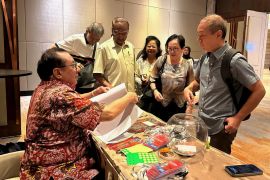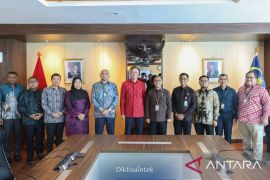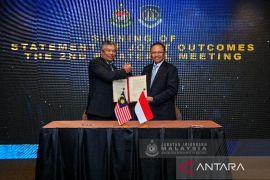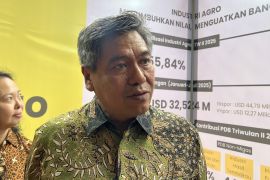The environmental cooperation will be among the topics to be discussed by Indonesian Foreign Minister Retno Marsudi and her Malaysian counterpart Saifuddin Abdullah at a bilateral meeting held in Jakarta on Monday (July 23).
"Malaysia has only two rhinoceros alive, while we still have some, although their population is decreasing," Foreign Ministry`s Southeast Asia Director Denny Abdi noted during a press briefing in Jakarta, Wednesday.
The challenge faced in conserving Sumatran rhinos is technology, so both countries have hired experts from Germany and the United States to find a breakthrough, so that this Asian two-horned rhinoceros can breed naturally.
"The experts are working together. Indonesia has a conservation center in Lampung, while Malaysia has one in Sabah," Abdi remarked.
Perhaps no issue underscores just how absurd the Sumatran rhino conservation has become than the fate of a vial of sperm sitting in a freezer at the Suaka Rhino Sumatera (SRS) Way Kambas, Lampung. The sperm comes from a rhino named Andalas, and Malaysia has been requesting for it for two years, Mongabay reported in November 2017.
Only two Sumatran rhinos are left in Sabah, in the Malaysian Borneo, both held in captivity. Tam is an old bull, with a low sperm count, while Iman is suffering from uterine cancer. However, technology may make it possible to conceive a new rhino.
A plan to combine Andalas` proven sperm with Iman`s viable oocytes to produce a rhino embryo that could then be implanted into one of the females at the SRS, if successful, could produce a rhino with a super shot of genetic diversity. Iman comes from a population that has been separated from the populations on Sumatra for eons. The rhinos of Borneo were once considered a distinct subspecies.
However, the two governments still follow different approaches, with Indonesia largely focusing on natural breeding, while Malaysia, out of sheer necessity, is now prioritizing high-tech IVF.
In addition to rhino conservation, both foreign ministers will discuss various bilateral issues including migrant workers and education for their children, palm oil industry, and border area management, which will then be followed up at the working level between the related ministries and agencies.
EDITED BY INE/H-YH
(T.Y013/B/KR-BSR/A/H-YH) 18-07-2018 17:39:37
Reporter: Yashinta Difa Pramudyani
Editor: Fardah Assegaf
Copyright © ANTARA 2018

